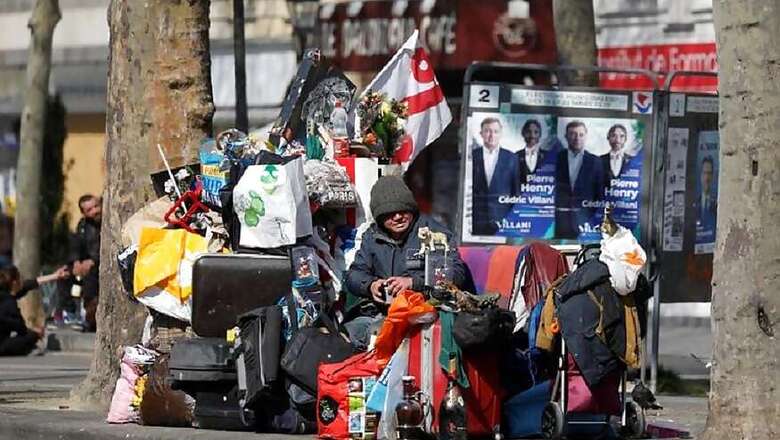
views
Île De Noirmoutier: On their peaceful island off France’s Atlantic Coast, some locals watched, with growing dread and rage, the images from Paris. As rumors began circulating about an imminent nationwide lockdown to stem the coronavirus outbreak, hordes of Parisians jammed into trains.
There was no doubt about their destination.
A local mayor, Noël Faucher, moved to block the only bridge to the mainland. But national authorities said it would be illegal.
Overnight, the island’s population nearly doubled, to 20,000. Nearly two weeks after the nationwide lockdown went into effect March 17, there are about 70 suspected cases of the coronavirus on the island.
In France and across Europe, affluent city dwellers have been decamping epicenters of the crisis to their second homes, where proximity to the sea or mountains lessens the discomfort of confinement. But they also bring fears that they will spread the virus to regions with few hospitals to handle a surge of the sick, putting at greater risk local residents who tend to be older and have limited incomes.
The influx into second homes has ignited anger over what the global pandemic is laying bare: the ever-widening gap between the rich and the poor.
Unlike the second-home-owning class, many Europeans face the likelihood of spending weeks in quarantine in cramped spaces. Some have been laid off, while others must continue to work, sometimes with limited protection, in low-paying jobs that require contact with people.
According to locals and Parisians on the island, some urbanites arrived in Noirmoutier and headed straight to the beach. In retribution, tires of about half a dozen cars with Paris plates were slashed.
Noirmoutier has no facility to treat serious conditions, with the closest emergency unit more than 25 miles away, Faucher said.
Tensions were particularly high the first few days after the Parisians descended on the island.
The Parisians were hoarding. At a bakery called L’Épine, one Parisian left with 20 baguettes. At an organic supermarket, another Parisian filled a shopping cart with $325 worth of groceries. Locals and Parisians fought over fresh vegetables delivered at 10 a.m.
Things have calmed down thanks to law enforcement, Faucher said. A helicopter flies over the beach to enforce a new ban, reporting trespassers to police officers on the ground. Patrol officers have issued 50 warnings to people flouting confinement rules.
Norimitsu Onishi and Constant Méheut c.2020 The New York Times Company




















Comments
0 comment